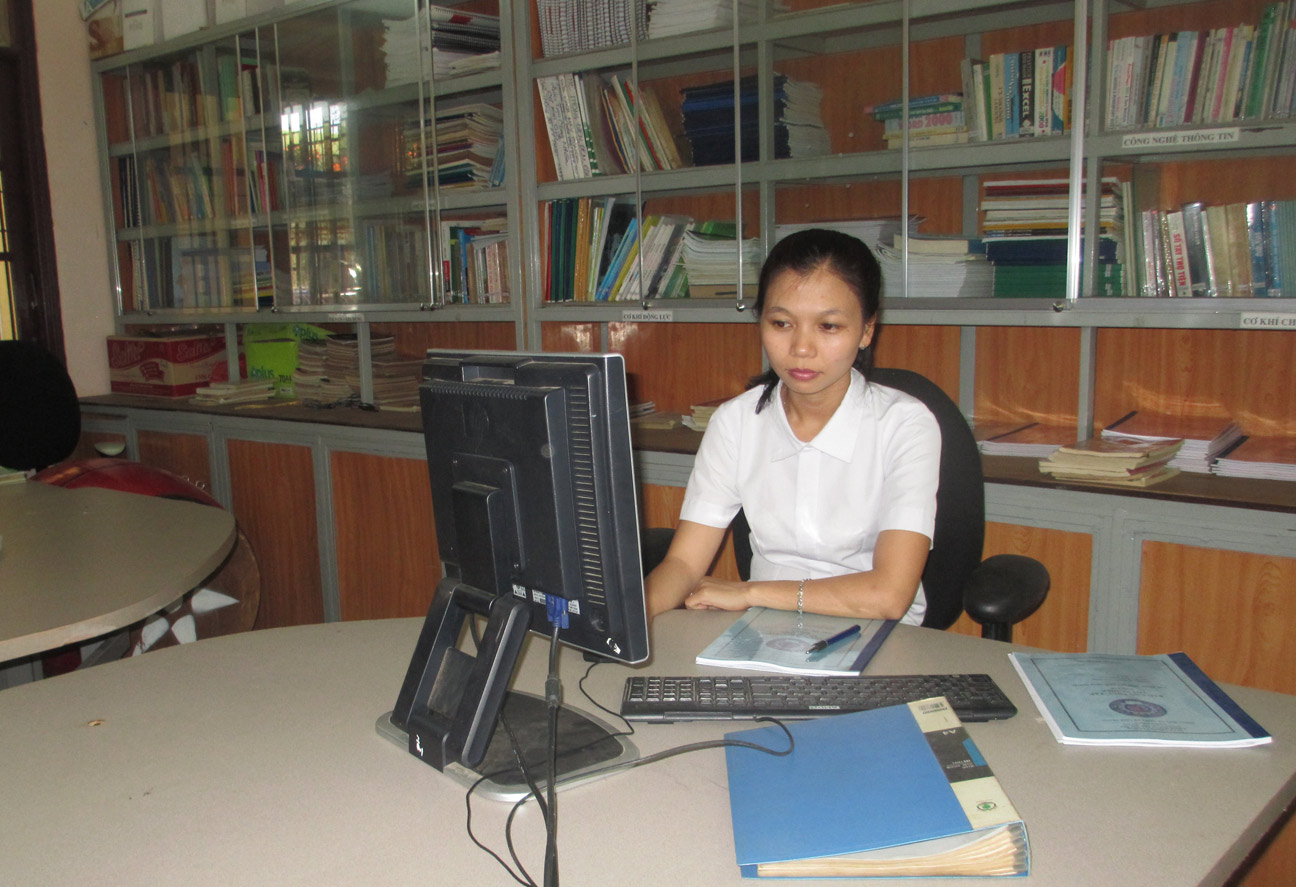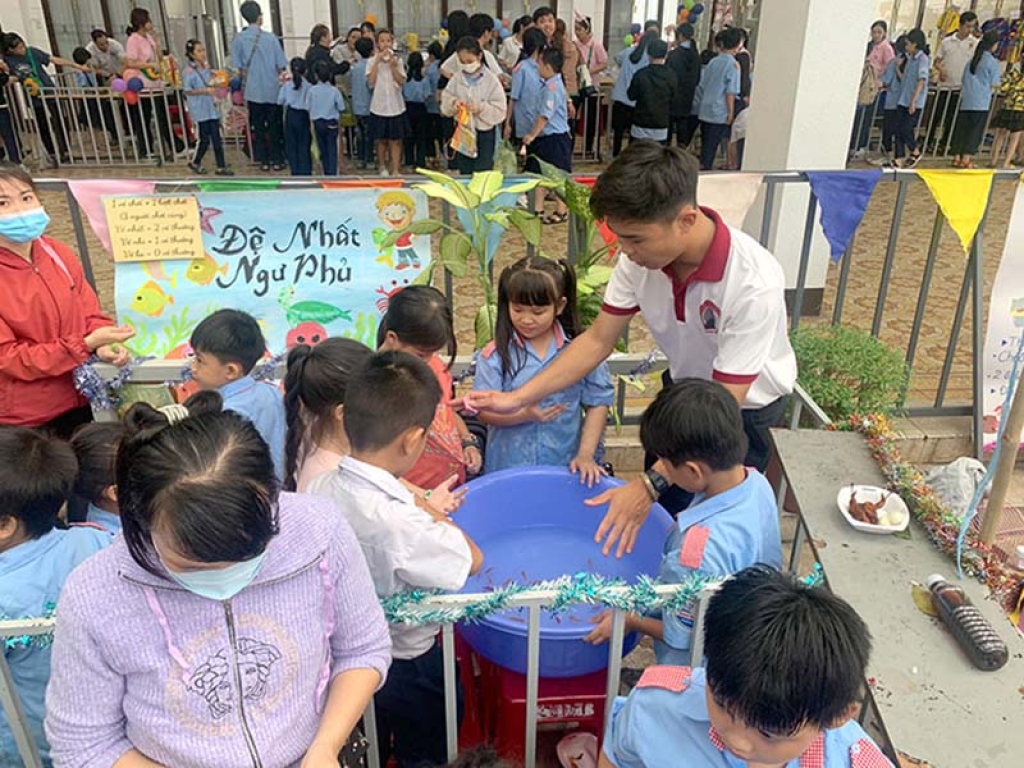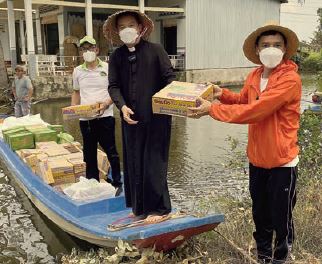VIETNAM: More Than 1,500 Salesian Students and Teachers Have New School and Office Furniture

(MissionNewswire) Salesian programs in Vietnam have new school and office furniture thanks to a recent donation made possible by an ongoing partnership between Salesian Missions and the Institution Recycling Network (IRN), an organization that matches surplus items with organizations and people who need them. The donation was comprised of two furniture shipments that are benefitting more than 1,500 Salesian teachers and students in the country.
The recent shipments included new desks, chairs, tables, bookcases and filing cabinets donated by IRN to five Salesian institutions in Vietnam including the Ky Anh Vocational Training School, the Dong Thuan Vocational Training Center, the Tan Tien Intermediate Skills Training School, the Phuoc Loc Vocational Training Center and the Theological Institute and Provincial House.
“On behalf of all the students in the Dong Thuan Center, we are very grateful for the new school furniture,” says Pham Van Giau, a student at the Dong Thuan Vocational Training Center. “The new desks and chairs we received will replace the older furniture we had been using and will enable us to be better prepared for class and study more effectively.”
The Institution Recycling Network was started in 1999 to match surplus items that need to be recycled with organizations and people who need them. Every educational, commercial and healthcare organization in the U.S. has surplus furniture and equipment. Hundreds of millions of people living in poverty or recovering from natural disasters worldwide are in desperate need of the kinds of surplus goods these very organizations are discarding. IRN makes the match and facilitates the distribution of the surplus into the hands of the organizations and people who need it most.
IRN partners with nonprofits who are known to be reputable and effective providers of relief and development assistance, and who are able to use the types of surplus that IRN can provide. The organization has a “wish list” from each of its nonprofit partners of the types and quantities of surplus they can use.
When a project comes to IRN, it makes a match against these wish lists and offers the surplus to the most appropriate nonprofits. At this point, surplus is offered on a first-come-first-served basis; the first nonprofit(s) to express interest in the surplus, receives it. In many cases, a single nonprofit will claim the entire project but in some cases, the surplus will be split among two or more organizations.
Salesian schools, services and programs throughout Vietnam are helping to break the cycle of poverty while giving many young people hope for a more positive and productive future. Salesian vocational and technical schools equip students with the skills they need to compete in the local labor market by offering courses that lead to employment in construction, hotel management, electrical and mechanical engineering, computer science and other fields. Many Salesian students are school dropouts seeking a second chance.
According to the World Bank, close to 14 percent of Vietnam’s population lives in conditions of poverty. The country has seen a drastic reduction of poverty over the last 20 years when the poverty rate was close to 60 percent. Vietnam has also made remarkable progress in education. Primary and secondary enrollments for those in poverty have reached more than 90 percent and 70 percent respectively. Rising levels of education and diversification into off-farm activities, such as working in construction, factories or domestic housework have also contributed to reducing poverty in the country.
While nearly 30 million Vietnamese have been lifted out of poverty in the past 20 years, challenges remain. According to the World Bank, although Vietnam’s 53 ethnic minority groups make up less than 15 percent of the population, they accounted for nearly 50 percent of the poor in 2010. Most minorities continue to reside in more isolated and less productive regions of Vietnam. Rapid economic transformation and growth have contributed to rising inequality in income and opportunities. Some of the poor, especially those living in rural areas or small cities, have limited access to high quality education and health services and limited long-term well-paying jobs.
###
Sources:
Salesian Missions – Vietnam
World Bank – Vietnam




